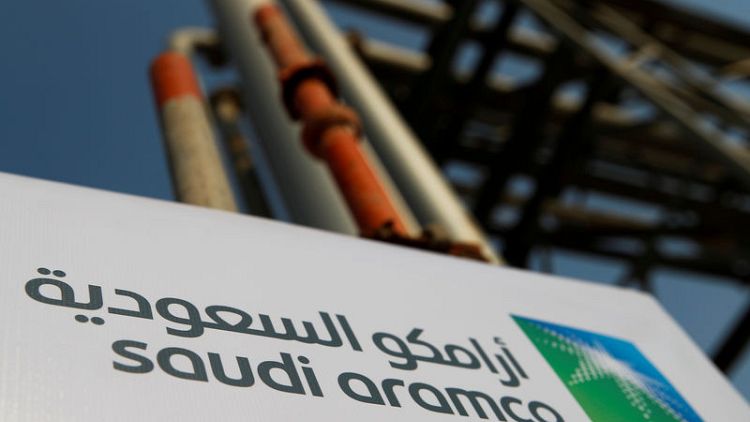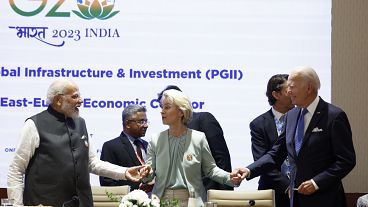By Hadeel Al Sayegh, Marwa Rashad and Rania El Gamal
DUBAI/RIYADH (Reuters) - Oil giant Saudi Aramco's much-vaunted stock market listing was delayed after deal advisers said they need more time to lock in cornerstone investors, three sources with direct knowledge of the matter told Reuters.
After a false start last year, preparations gathered momentum this summer with approaches to sovereign wealth funds, rich Saudis and large foreign fund managers as potential cornerstone investors only for plans to unravel for a second time.
The world's biggest oil company had been expected last week to launch the domestic sale of a 1-2% stake, but the signing up of marquee backers has been hampered by continuing valuation concerns exacerbated by recent attacks on Aramco's Abqaiq and Khurais plants.
Aramco was unable to answer valuation questions fully during initial talks with investors, said one Gulf institutional investor who has been involved in the discussions.
Sovereign funds in the oil-rich Gulf region typically shy away from energy exposure, he added, looking to diversify their investment portfolio.
Two of the sources said that a Saudi government committee overseeing the planned Aramco flotation had therefore recommended to Crown Prince Mohammed bin Salman last Wednesday that the launch of an initial public offering (IPO) scheduled for Oct. 20 be postponed.
The chief of Saudi Arabia's sovereign wealth fund PIF, Yasir al-Rumayyan, heads the committee, which includes senior Saudi officials, sources said. He is also the newly appointed chairman of Aramco.
Aramco declined to comment and the Saudi government media office did not respond to a Reuters' request for comment.
The prince, the kingdom's de facto ruler, has made the Aramco IPO a pillar of an ambitious economic reform drive. He wants the company to be valued at about $2 trillion, though bankers and company insiders put the value closer to $1.5 trillion.
Banks involved in the offering received news of the delay on Thursday evening. An email from top advisers said that a call with bankers on Friday to discuss strategy to secure investors was cancelled, as was the Sunday launch, said one banker who saw the email.
The rationale was that third-quarter results, which one of the sources said could come before the end of October, would bolster investor confidence after the Sept. 14 attacks initially halved Aramco's output and shook oil markets.
ANCHOR INVESTORS
Talks have taken place with Abu Dhabi Investment Authority, Singapore's GIC and other funds, sources have told Reuters.
Al-Rumayyan is pushing banks to achieve the top valuation, said a fourth source familiar with the IPO plan.
Anchor, or cornerstone, investors such sovereign wealth funds are considered key to secure demand. In 2016 state-owned Postal Savings Bank of China <1658.HK> sold 77% of its $7.4 billion IPO to such backers.
"They (Aramco) will want anchor investors to cover no less than 40% of the offering. Anything below that won't be enough," said one of the three sources close to the deal.
The latest delay in the plan to hold what could be one of the world's largest public offerings -- potentially raising upwards of $20 billion from the sale of 5% of Aramco in total -- has revived debate on whether Saudi Arabia can ever realise its valuation target given moribund oil prices.
"The current oil price environment is not favourable for the $2 trillion target," said Steffen Hertog, associate professor at the London School of Economics.
"Aramco expects the oil market to recover over the coming few years. Another longer delay would, however, test the patience of the market; the optics would not be ideal."
(Additional reporting by Clara Denina, Stephen Kalin and Saeed Azhar; Editing by Ghaida Ghantous/David Goodman/Jane Merriman)



